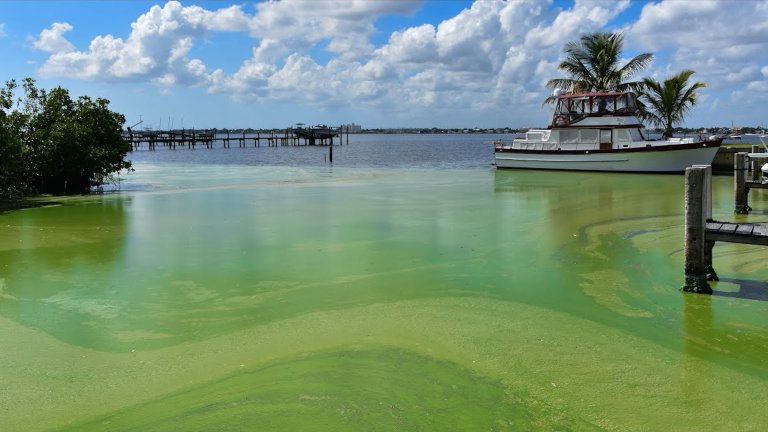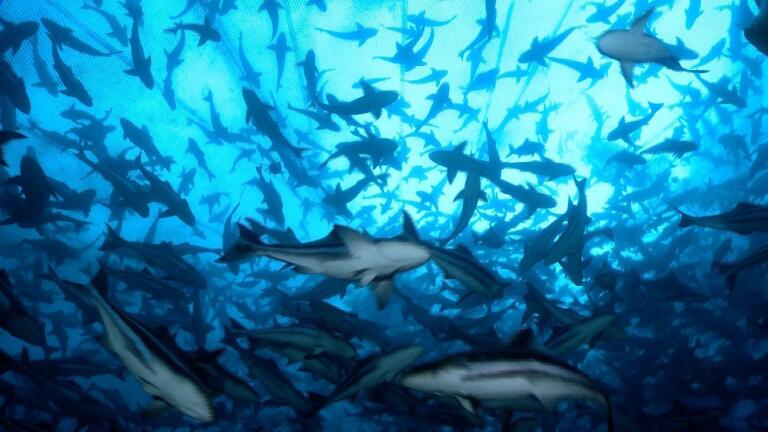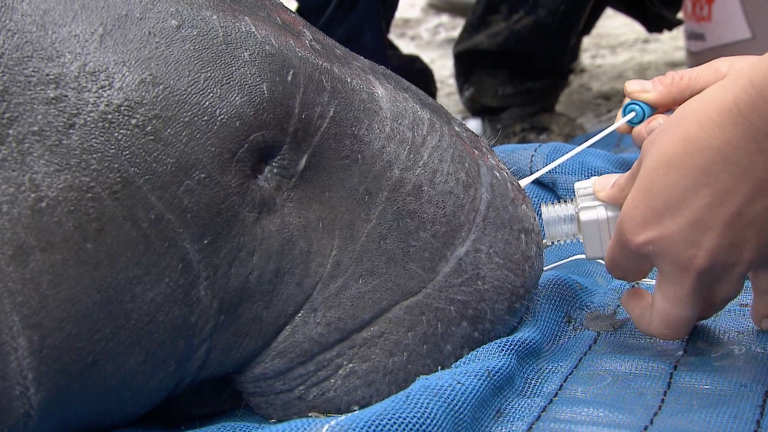
Access to this video is a benefit for members through PBS Passport.
Back to Show
Changing Seas
Majestic Mantas
Season 9
Episode 904
The remote Revillagegdo Archipelago off Mexico’s Pacific coast is a hotspot for giant mantas that interact with awe-struck scuba divers. Scientists are studying the local population using photo ID techniques and acoustic tags which track the movements of these mysterious fish. They are also conducting experiments to see if the filter-feeding rays are impacted negatively by microplastics.
Support Provided By

Unlock with PBS Passport
26:42
Scientists study tarpon, bonefish and permit to better understand their behaviors.

Unlock with PBS Passport
26:42
Scientists work to save crocodiles through research and conservation.

Unlock with PBS Passport
26:42
Deep underwater, on a shipwreck near Key West, lives a tiny potential new threat.

Unlock with PBS Passport
26:43
Modern technology is making it possible to correlate dolphin sounds and behavior.

Unlock with PBS Passport
27:13
Changes to the ocean environment affect the way carbon is cycled through the seas.

Unlock with PBS Passport
27:13
Lake Okeechobee, once the blue heart of Florida, now has putrid mats of blue green algae.

Unlock with PBS Passport
27:18
Discover ways to increase fish production in a sustainable manner.

Unlock with PBS Passport
26:43
Discover what lives beneath the Blue Heron Bridge in Florida.

Unlock with PBS Passport
26:43
Visit the remote Pacific, the islands of Maug - a natural laboratory for scientists.

Unlock with PBS Passport
26:43
Scientists take advantage of manatee gatherings to study them.

Unlock with PBS Passport
26:43
Some scientists are suggesting that ctenophores are the oldest sea animals.

Unlock with PBS Passport
26:43
Discover how some fish species change their sex.











